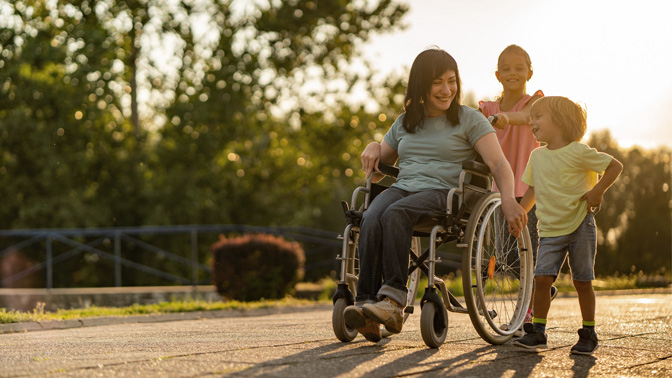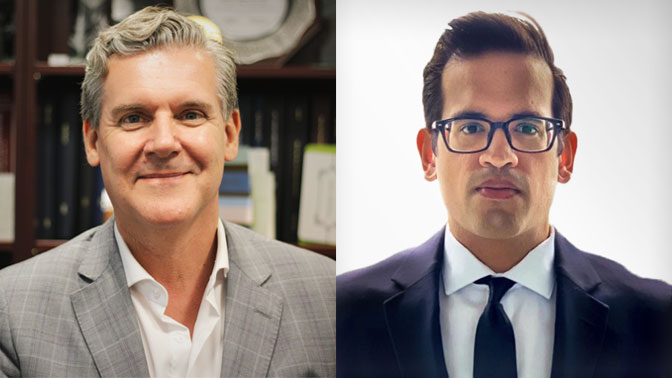
The nerves that run through the spinal cord exchange messages between the brain and the rest of the body. Traumatic injuries to the spinal cord can damage these nerves and cause paralysis, numbness or loss of bladder or bowel control.
A treatment called surgical decompression alleviates compressed nerves in the spinal cord and can help patients regain some sensory and motor function. Krembil Senior Scientist Dr. Michael Fehlings and a team of neurosurgeons including Dr. Jetan Badhiwala sought to find out the optimal time to perform this surgery.
“We’ve identified a critical window within which surgical decompression should take place.” Dr. Fehlings explains, “Patients who had surgical decompression within 24 hours of their injury had the greatest neurological recovery after one year. Furthermore, we discovered that motor recovery plateaus with surgeries performed after 36 hours.”
The team analyzed data from four multicentre studies for 1,548 patients. The patients were split into two groups based on the time from injury to surgery: individuals who received surgery within 24 hours, and those who received surgery at or after 24 hours. At one year after surgery, those who received surgery within 24 hours showed greater improvement in all motor scores tested. Moreover, even within 24 hours, the earlier patients received surgery, the better their recovery.
Using the data, the team also discovered that at 36 hours after the injury there was a plateau in recovery. This suggests that at this point the nerves and tissue become irreversibly damaged and surgery is no longer beneficial.
“This study demonstrates that ‘time is spine’—timely surgical decompression, specifically within 24 hours, can provide patients the greatest chance for recovery,” says Dr. Fehlings.
In a separate clinical trial, Dr. Fehlings and his team, including Dr. Badhiwala, assessed whether the drug riluzole could help enhance sensorimotor recovery if taken prior to surgical decompression. While the drug did not improve motor recovery, researchers found evidence that it might reduce neck pain after decompression in patients with degenerative cervical myelopathy, or compression of the spinal cord.
Dr. Fehlings comments, “We hope that our findings help inform existing clinical guidelines for the treatment of spinal cord injuries, and put in motion more research into therapeutic strategies that can be rapidly deployed after injury to help improve the recovery of patients with spinal cord injuries.”
Badhiwala JH, Wilson JR, Witiw CD, Harrop JS, Vaccaro AR, Aarabi B, Grossman RG, Geisler FH, Fehlings MG. The influence of timing of surgical decompression for acute spinal cord injury: a pooled analysis of individual patient data. Lancet Neurol. 2020 Dec 21. doi: 10.1016/S1474-4422(20)30406-3.
Supported by the Canadian Institutes of Health Research, and the Toronto General & Western Hospital Foundation.
Fehlings MG, Badhiwala JH, Ahn H, Farhadi HF, Shaffrey CI, Nassr A, Mummaneni P, Arnold PM, Jacobs WB, Riew KD, Kelly M, Brodke DS, Vaccaro AR, Hilibrand AS, Wilson J, Harrop JS, Yoon ST, Kim KD, Fourney DR, Santaguida C, Massicotte EM, Kopjar B. Safety and efficacy of riluzole in patients undergoing decompressive surgery for degenerative cervical myelopathy (CSM-Protect): a multicentre, double-blind, placebo-controlled, randomised, phase 3 trial. Lancet Neurol. 2020 Dec 22. doi: 10.1016/S1474-4422(20)30407-5.
Sponsored by AOSpine North America, and the Toronto General & Western Hospital Foundation.
This surgical decompression research also benefits from the support of the DeGasperis Family Foundation. Dr. Fehlings holds the Gerald and Tootsie Halbert Chair in Neural repair and Regeneration.

(L-R) Senior author of both studies Dr. Michael Fehlings and author Dr. Jetan Badhiwala.

